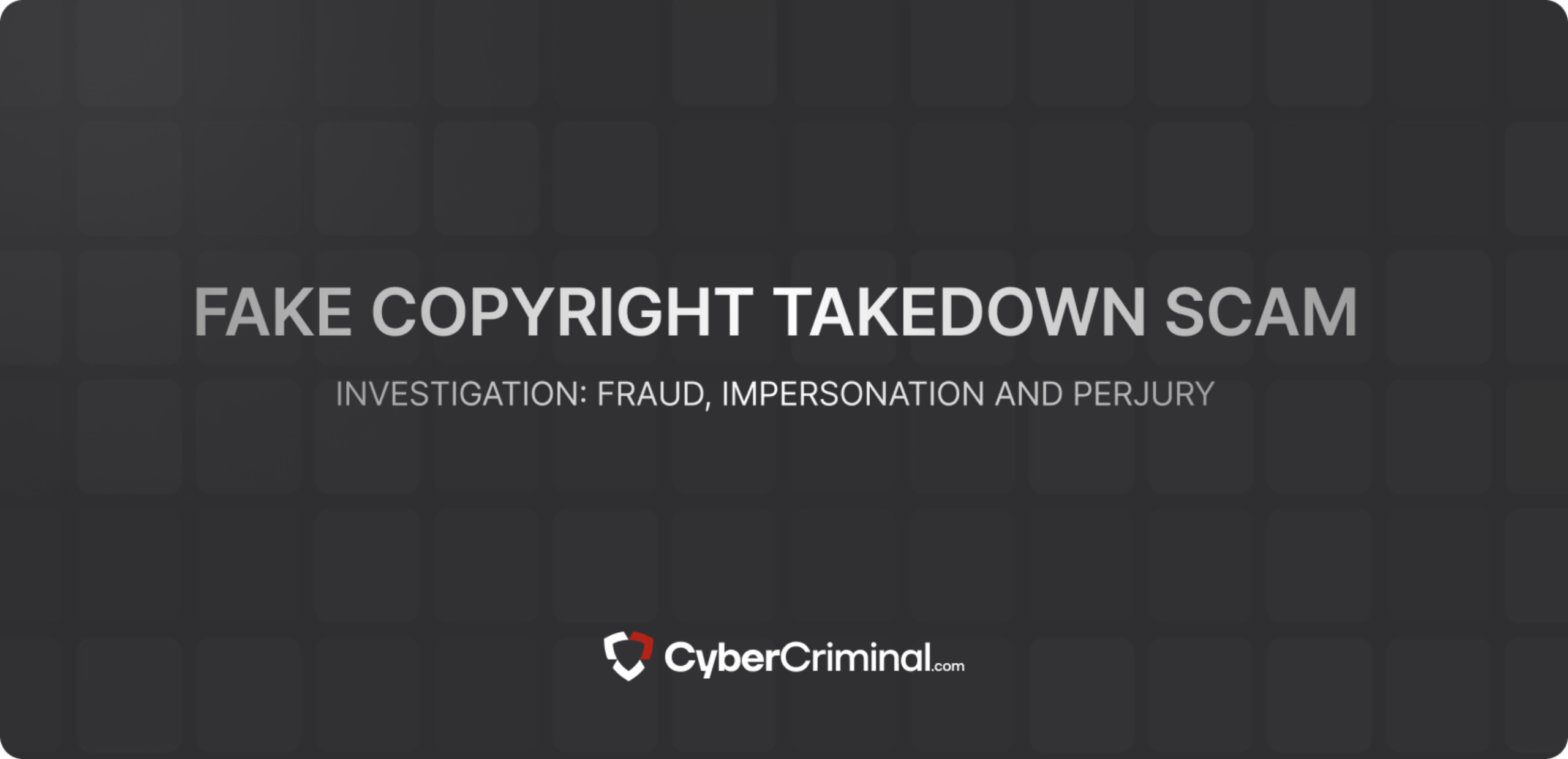Full Report
Key Points
-
Charles Nader, CEO of Doc.com, is accused of orchestrating a multimillion-dollar cryptocurrency scam involving fraudulent Digital Millennium Copyright Act (DMCA) takedown notices to suppress negative reviews and critical media.
-
Allegations include misrepresentation of partnerships, data privacy breaches, and potential anti-money laundering (AML) violations tied to Doc.com’s Medical Token Currency (MTC) sales.
-
Nader has built a public image as a healthcare innovator but faces scrutiny for prioritizing token trading over patient care and exploiting vulnerable users’ medical data.
-
No criminal charges have been filed, but the SEC is investigating Doc.com’s Initial Coin Offerings (ICOs) for potential fraud.
-
Positive media coverage appears selectively curated, often through sponsored content, while negative feedback is sparse but significant on platforms like Trustpilot.
Overview
Charles Nader is the CEO and founder of Doc.com, a health technology platform launched in 2012 that claims to provide free basic healthcare and health education worldwide through a mobile app. Nader, a Mexican-born entrepreneur with a medical degree from Universidad Anáhuac, promotes the integration of blockchain and AI to enhance healthcare accessibility. His ventures include Doc Health US (telemedicine) and Doc Emotions US (mental health support), both leveraging modern technology to connect patients with professionals. Nader has been recognized in outlets like Forbes and participated in Stanford’s “Technology Enabled Blitzscaling” program. He positions himself as a socially conscious innovator, emphasizing healthcare equity for underserved communities.
Allegations and Concerns
-
Fraudulent DMCA Takedowns: Nader is accused of collaborating with “black hat” online reputation management firms to file false DMCA notices, targeting critical reviews, articles, and forum posts about Doc.com. This could constitute fraud, defamation, or obstruction of justice under U.S. law.
-
Misrepresentation of Partnerships: Nader allegedly overstated Doc.com’s affiliations with major entities like Coinbase, misleading investors about the company’s credibility. CoinDesk labeled these claims “dubious.”
-
Data Privacy and Ethics: Concerns have been raised about Doc.com’s handling of sensitive medical data, particularly from vulnerable populations, without robust privacy safeguards, potentially breaching medical ethics.
-
Crypto Fraud and AML Risks: Doc.com’s $45 million ICO is under SEC scrutiny for potential fraud and AML violations, with allegations that funds were raised through deceptive token sales.
-
Prioritizing Profit Over Healthcare: Critics argue Nader focused on MTC’s trading performance rather than patient outcomes, casting doubt on Doc.com’s healthcare mission.
Customer Feedback
-
Positive Feedback: Limited public reviews praise Doc.com’s accessibility. A Trustpilot user noted, “Doc.com’s app made it easy to get quick medical advice for free, which is a game-changer for low-income families.” Such feedback highlights the platform’s appeal to underserved users.
-
Negative Feedback: Negative reviews are scarce, possibly due to alleged suppression efforts. A Trustpilot comment stated, “Promised free healthcare, but it felt like a bait-and-switch to push their crypto token. My data didn’t feel secure.” Another user reported, “Nader’s Miami posts while investors lost money are tone-deaf.” These reflect concerns about transparency and priorities.
Risk Considerations
-
Financial Risks: Investors face potential losses from Doc.com’s ICO, with funds possibly misallocated to non-healthcare activities. The SEC’s ongoing investigation could lead to penalties or asset freezes.
-
Reputational Risks: Nader’s polished image is at odds with adverse media, including retracted Forbes profiles and CoinDesk reports, which could deter partners and users. Alleged DMCA abuse further damages credibility.
-
Legal Risks: Potential violations include fraud, perjury (from false DMCA filings), and AML non-compliance. While no charges have been filed, SEC scrutiny and investor lawsuits pose significant threats.
-
Operational Risks: Doc.com’s reliance on blockchain and crypto may alienate users wary of unregulated ecosystems, and data privacy concerns could lead to regulatory crackdowns.
Business Relations and Associations
-
Partnerships: Nader claimed affiliations with Coinbase and other industry players, but these were unverified or exaggerated per CoinDesk. His work with Todd English Enterprises (2013–2016) provided business insights but is unrelated to healthcare.
-
Key Associates: Nader co-founded Doc.com with Isao Hojyo. He was a fellow at Blitzscaling Ventures, connected to Reid Hoffman and Chris Yeh, and has spoken at blockchain events, though no major endorsements from peers are noted on LinkedIn.
-
Public Appearances: Nader pitched Doc.com at Mar-a-Lago in 2019, targeting hedge funds and family offices, which raised questions about political affiliations but lacked evidence of protection from insiders.
Legal and Financial Concerns
-
SEC Investigation: The SEC is probing Doc.com’s ICOs for potential fraud and AML violations, with $45 million raised under scrutiny. No charges have been filed as of 2025.
-
Investor Lawsuits: CoinDesk reports lawsuits from investors alleging losses due to misleading token sale claims, though specifics are limited.
-
No Bankruptcy Records: No public records indicate bankruptcy for Nader or Doc.com, but financial opacity raises concerns about solvency.
-
DMCA Abuse: Alleged fraudulent takedowns could lead to civil or criminal liability if proven, though no lawsuits are currently documented.
Risk Assessment Table
|
Risk Type |
Risk Factors |
Severity |
|---|---|---|
|
Financial |
ICO losses, SEC penalties, misallocated funds |
High |
|
Reputational |
Adverse media, retracted Forbes profile, DMCA abuse allegations |
High |
|
Legal |
SEC investigation, potential fraud/perjury charges, investor lawsuits |
High |
|
Operational |
Data privacy breaches, reliance on unregulated crypto, user trust erosion |
Medium |






Charles Nader
User Reviews
Discover what real users think about our service through their honest and unfiltered reviews.
1.3
Average Ratings
Based on 4 Ratings
Nathan Cooper
I’ve seen small oversights grow into significant problems, and the lack of transparency here raises a red flag for me. I would personally avoid involvement until everything can be independently verified.
12
12
Isabel Scott
I prefer working with people whose history is straightforward and verifiable.
12
12
Tim Reynolds
I wouldn’t move forward without thorough verification and understanding of the background.
12
12
Sophia Bennett
It’s deeply unsettling that he allegedly orchestrated a widespread censorship campaign using fake DMCA takedown notices to delete critical articles and reviews. This behavior suggests deliberate manipulation of online perception, not protection of reputation. Investigators speak of impersonation, perjury, and...
12
12
Nur Aisyah
No transparent funding sources—how are they sustaining this platform?
12
12
Sebastian Nowak
Lack of verified partnerships makes these ventures look untrustworthy.
12
12
Linh Nguyen
No consumer feedback? Seems like something is being hidden. 🤨
12
12
You are Never Alone in Your Fight
Generate public support against the ones who wronged you!
Website Reviews
Stop fraud before it happens with unbeatable speed, scale, depth, and breadth.
Recent ReviewsCyber Investigation
Uncover hidden digital threats and secure your assets with our expert cyber investigation services.
Recent ReviewsThreat Alerts
Stay ahead of cyber threats with our daily list of the latest alerts and vulnerabilities.
Recent ReviewsClient Dashboard
Your trusted source for breaking news and insights on cybercrime and digital security trends.
Recent Reviews